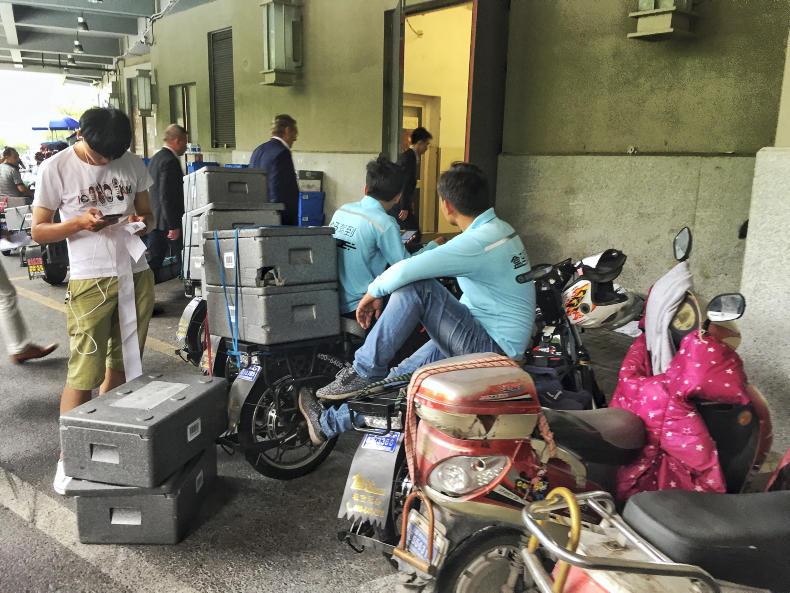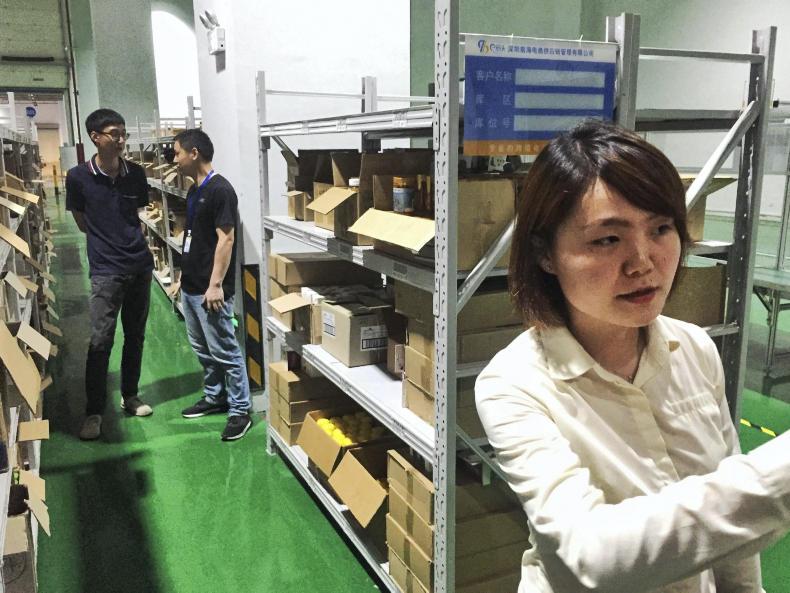Together with the food service sector, Bord Bia has identified online sales as a priority to establish Irish beef in China. Experts presenting to companies taking part in an EU trade mission to the country last week said that there are 731 million Chinese internet users representing half of the population – those with higher incomes who favour quality imported food products. Some 20% of retail sales in China are made online, while the highest figure in Europe is 7% in the UK.
“Most of the growth is coming from convenience stores and e-commerce,” said Pablo Recio Garcia of the consultancy Eibens.
“The scale of Chinese cities, the distances and traffic favour mobile e-commerce,” he added, with millions of consumers routinely ordering food on their smartphone while commuting.
This includes fresh and frozen products, with retailers and logistics companies developing cold chains all the way to people’s homes. One of them, SF Express, runs its own fleet of 56 planes and thousands of vans, all fitted with temperature monitoring and covering 127 Chinese cities. Since 2012, it has developed its own chain of 1,000 supermarkets also acting as distribution centres for local online sales.
“Delivery times are 30 minutes if you are within 1km of a store,” or 24 to 48hrs for the rest of the country, said SF’s Nicole Chen. Australian beef and European UHT milk are among its best sellers, she added.
Another growing channel is cross-border e-commerce, with importers sourcing directly from overseas or dispatching from designated free-trade areas allowed to ship items worth under €260 duty-free to individual customers.
The Irish Farmers Journal visited the warehouse of E-Matou, one such company based in the free-trade port of the southern hub of Shenzhen, where products on the shelves included Dutch infant formula and a range of Australian health foods.
Read more
Maximising the value of China
Impressions of China
Together with the food service sector, Bord Bia has identified online sales as a priority to establish Irish beef in China. Experts presenting to companies taking part in an EU trade mission to the country last week said that there are 731 million Chinese internet users representing half of the population – those with higher incomes who favour quality imported food products. Some 20% of retail sales in China are made online, while the highest figure in Europe is 7% in the UK.
“Most of the growth is coming from convenience stores and e-commerce,” said Pablo Recio Garcia of the consultancy Eibens.
“The scale of Chinese cities, the distances and traffic favour mobile e-commerce,” he added, with millions of consumers routinely ordering food on their smartphone while commuting.
This includes fresh and frozen products, with retailers and logistics companies developing cold chains all the way to people’s homes. One of them, SF Express, runs its own fleet of 56 planes and thousands of vans, all fitted with temperature monitoring and covering 127 Chinese cities. Since 2012, it has developed its own chain of 1,000 supermarkets also acting as distribution centres for local online sales.
“Delivery times are 30 minutes if you are within 1km of a store,” or 24 to 48hrs for the rest of the country, said SF’s Nicole Chen. Australian beef and European UHT milk are among its best sellers, she added.
Another growing channel is cross-border e-commerce, with importers sourcing directly from overseas or dispatching from designated free-trade areas allowed to ship items worth under €260 duty-free to individual customers.
The Irish Farmers Journal visited the warehouse of E-Matou, one such company based in the free-trade port of the southern hub of Shenzhen, where products on the shelves included Dutch infant formula and a range of Australian health foods.
Read more
Maximising the value of China
Impressions of China











SHARING OPTIONS